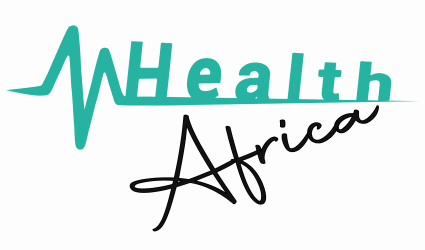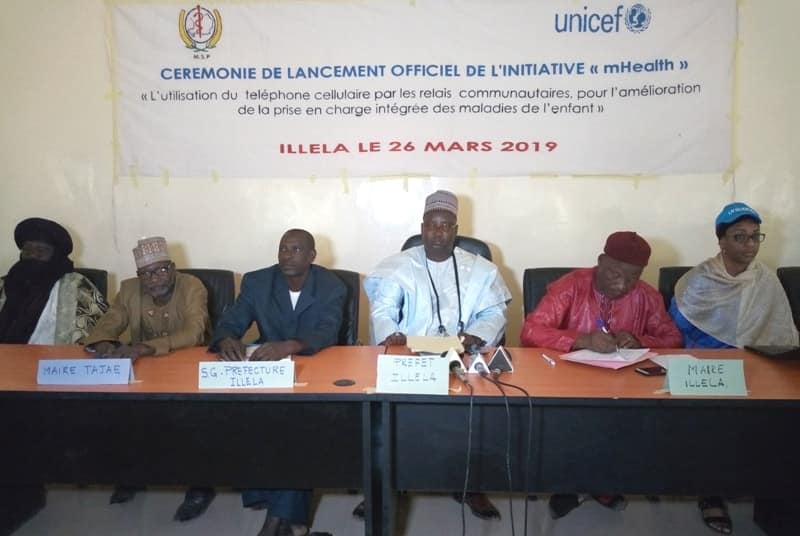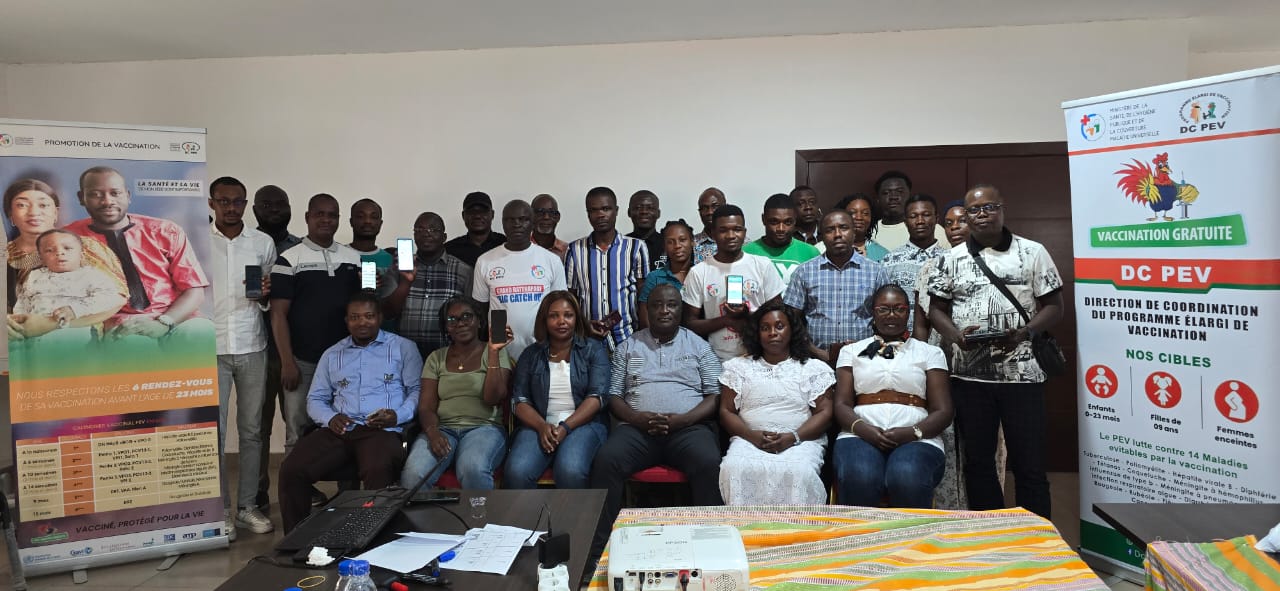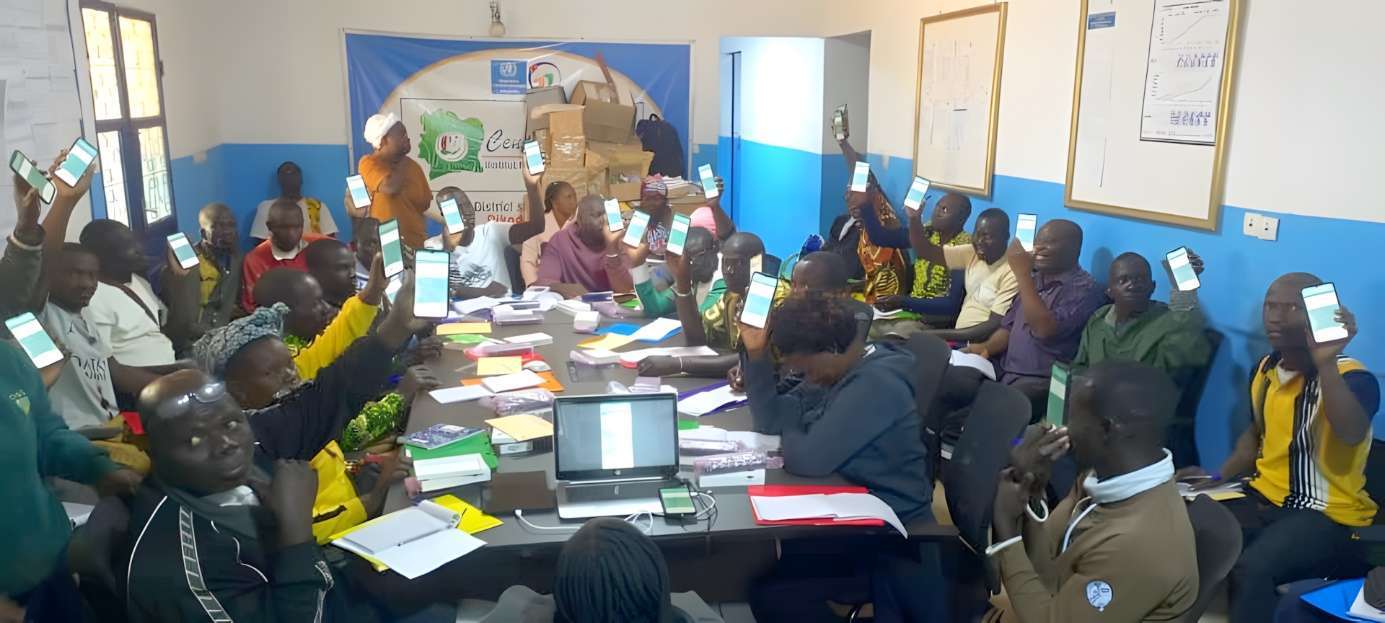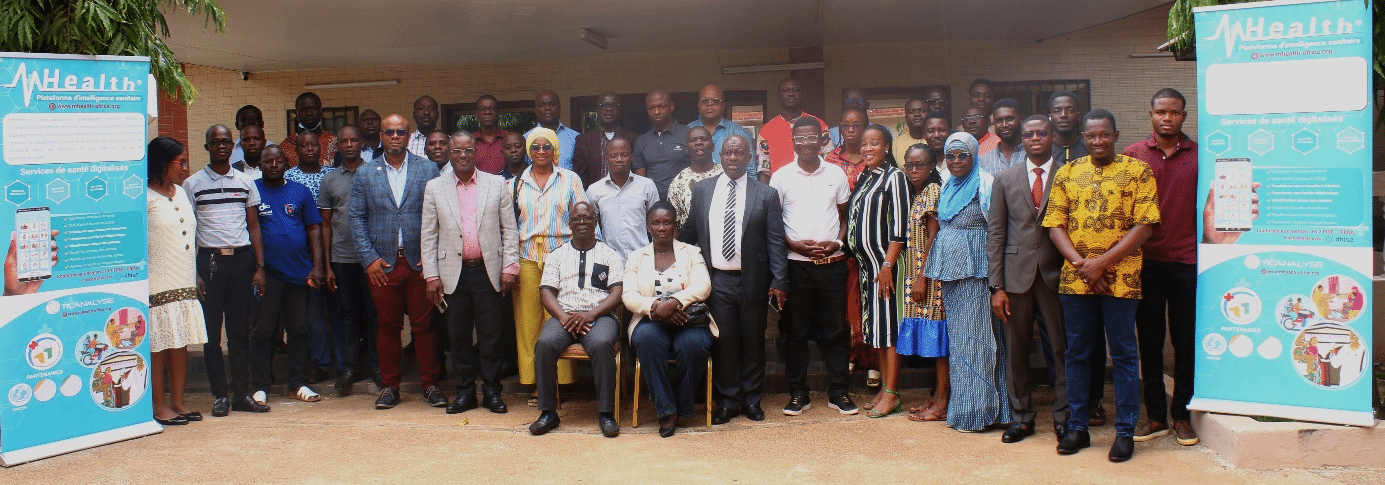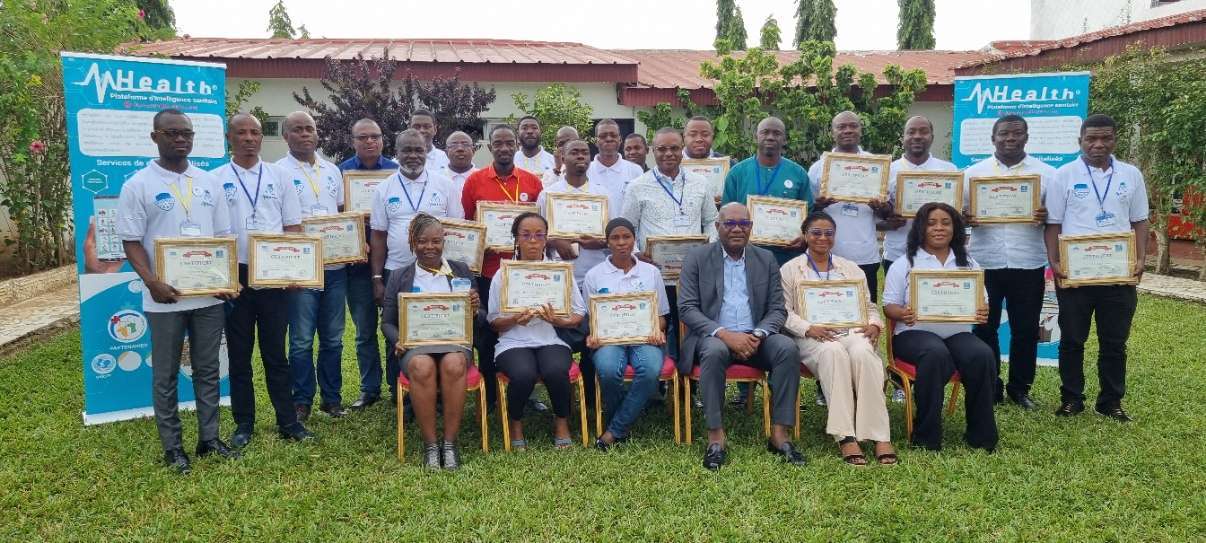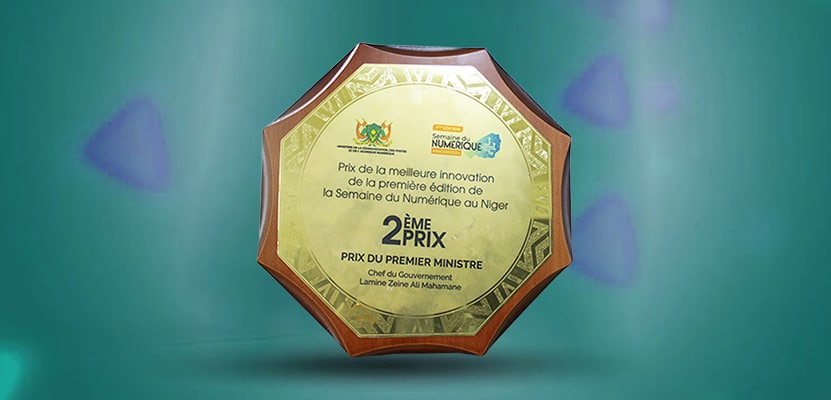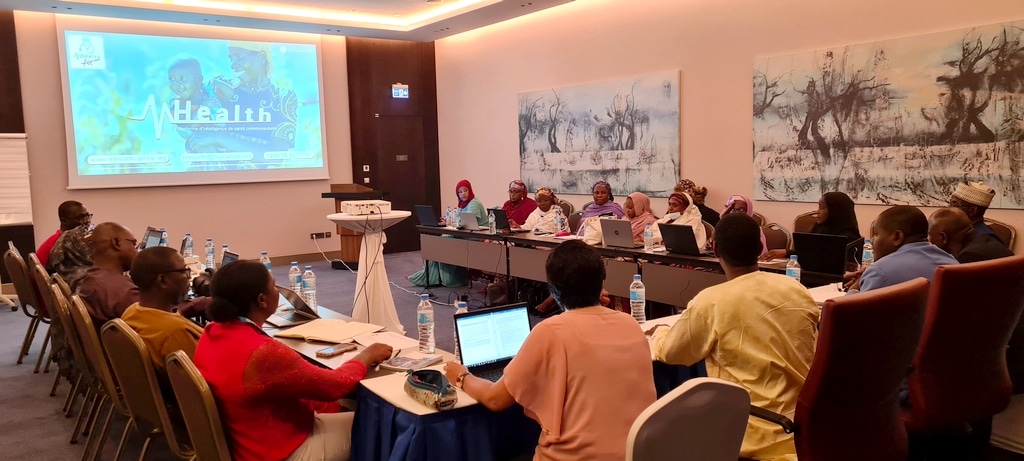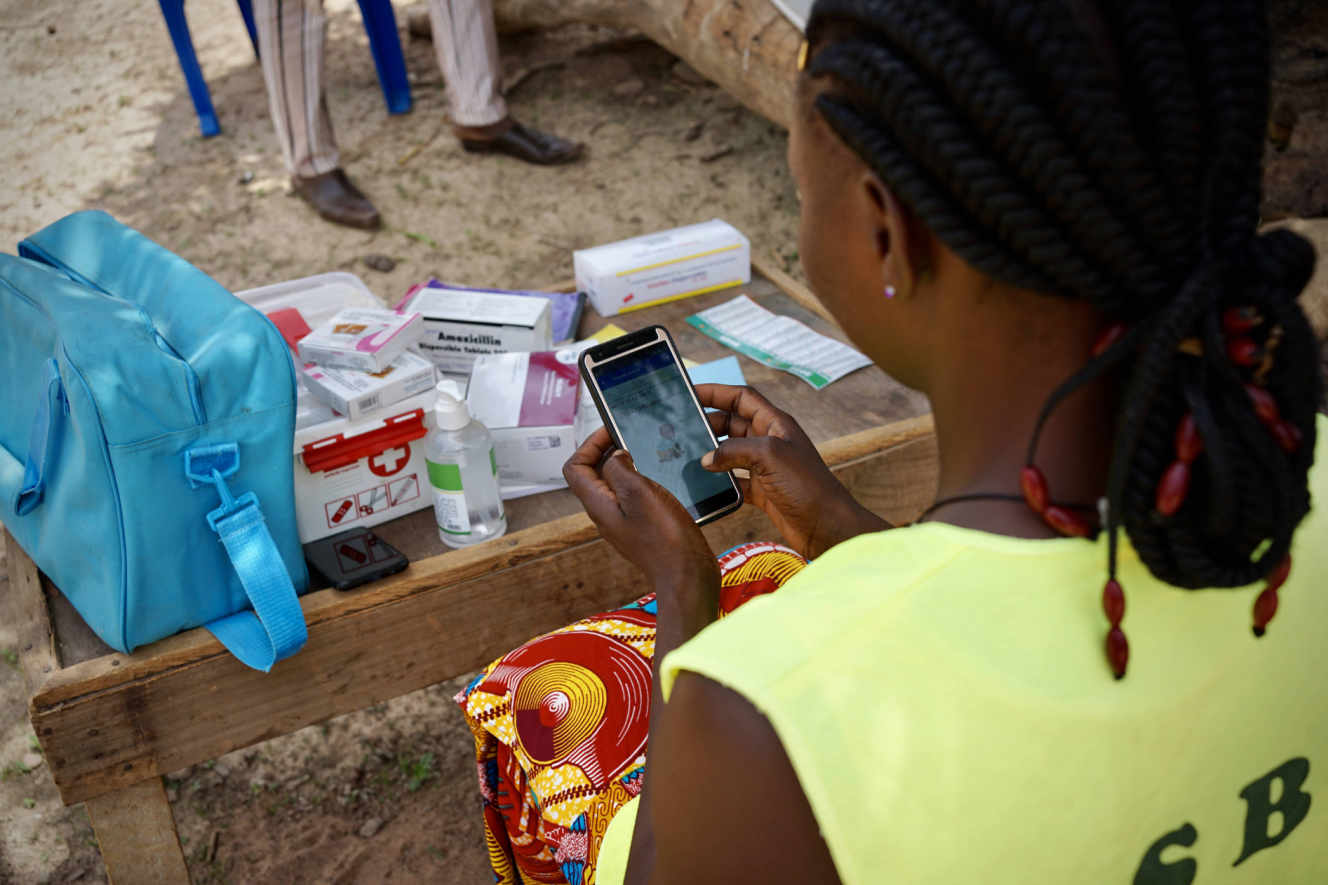Technological innovation in the service of health, particularly children's health, is taking its first steps in Niger. On Tuesday 26 March, the town of Illéla in the Tahoua region hosted the official launch of the "mobile for Health" (mHealth) initiative, an innovative service for treating sick children using mobile phones.
The colourful ceremony to launch the initiative was attended by representatives of the Ministry of Public Health, UNICEF's resident representative in Niger, the administrative and traditional authorities of the departments of Illéla and Badaguichiri and the commune of Tajaé, as well as the beneficiaries who turned out in force to attend the event.
Technological innovation for children's health
« mHealth », une initiative du ministère de la Santé publique avec le soutien de l’UNICEF, est un dispositif innovant basé sur l’usage de la téléphonie mobile pour assurer l’efficacité dans la collecte et la transmission instantanée des données sur la prise en charge intégrée des maladies de l’enfant au niveau communautaire. En pratique, c’est une approche qui améliore l’accès aux soins des populations éloignées à travers l’offre de services curatifs, préventifs et promotionnels par des relais communautaires. Dans la pratique, « mHealth » permettra ainsi aux relais communautaires de collecter et de transmettre les données en temps réel aux chefs de CSI à travers le téléphone portable, et de lancer des alertes-SMS aux chefs de CSI sur l’état des stocks de médicaments, pour éviter les ruptures de stock, comme l’a déclaré Dr Sylla Mariama au nom de la Répresentante de l’Unicef au Niger. La mise en service de ce service d’application mobile s’inscrit dans la droite ligne du mécanisme de Prise en charge des maladies de l’enfant au niveau communautaire (ou PCIME-c), qui est une stratégie nationale destinée à contribuer à la réduction de la morbidité et la mortalité infanto-juvénile et qui se focalise sur leurs principales causes, notamment le paludisme, la diarrhée, la pneumonie et la malnutrition. Cette approche qui vise à améliorer l’accès aux soins des populations éloignées à travers l’offre de services curatifs, préventifs et promotionnels par des relais communautaires a été introduite au Niger depuis 2013. Depuis 2016, l’UNICEF a soutenu sa mise à l’échelle, et à ce jour, 28 des 72 districts du Niger mettent en œuvre cette stratégie. Toutefois, malgré l’efficacité prouvée de la PCIME-c, plusieurs goulots d’étranglement ont toutefois été relevés par les agents de santé, dont entre autres la faiblesse dans la collecte et la transmission des données sur la PCIME-c et les ruptures de stocks fréquentes. L’utilisation du téléphone cellulaire pour la santé (mHealth) a ainsi été retenue par le Ministère de la Santé comme une des solutions permettant d’accélérer les progrès dans ce cadre, d’autant qu’au Niger, seulement une personne sur deux a accès aux services de santé de base au Niger, en raison de la distance qui les sépare du premier centre de santé le plus proche.
Pilot phase
In the run-up to the launch of the initiative, 142 health and community workers were trained in the use of this technology, including around a hundred community relays, 17 heads of integrated health centres (CSIs) who train and supervise community relays, and 5 members of the Illéla district management team. According to the UNICEF representative, this pilot phase for the introduction of the mHealth initiative will cover around 165 villages located more than five kilometres from health facilities in the Tahoua region, in the three communes of the Illéla health district (Badaguichiri, Tajaé, Illéla). More than 80,000 children under the age of five will be covered by this initiative. "Only one person in two has access to basic health services in Niger, because of the distance separating them from the nearest health centre. Community relays therefore play a crucial role in bringing services closer to the population. In 2018 alone, for example, they managed to treat more than 97,000 cases of malaria, almost 100,000 cases of diarrhoea and almost 100,000 cases of pneumonia nationwide", said Dr Mariama Sylla. In the department of Illéla, Dr Mariama Sylla added that in 2018, the community relays in the three communes "treated nearly 3,000 cases of malaria, 2,500 cases of diarrhoea and 3,300 cases of pneumonia. They also screened and referred more than 500 malnourished children".
L’initiative « mHealth » arrive donc à point nommé pour prendre en charge les défis en matière de prise en charge efficace des enfants malades d’autant qu’elle a fait ses preuves es pays comme l’Uganda, le Malawi, la Zambie, le Rwanda ou encore le Burkina Faso. Des pays qui ont déjà testé ce système mHealth avec des résultats encourageants en termes de disponibilité des stocks, de transmission, de collecte et d’analyse des données – quelques semaines après le démarrage des activités.
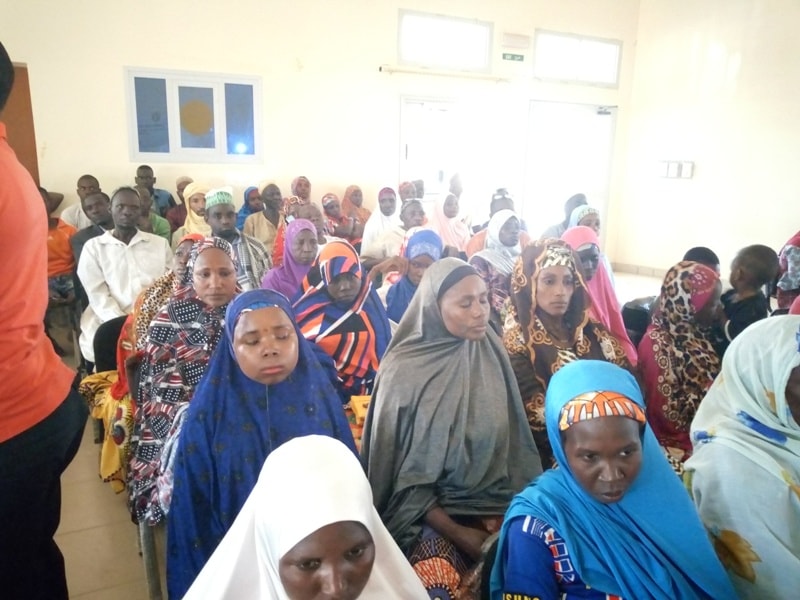
Edifying testimonies
The Prefect of Ilela, Sadou Boureima, agreed, explaining that the 2018 data confirmed that the number of serious cases received by the Integrated Health Centres (IHCs) had fallen sharply, hence the importance of the curative and preventive role of community-based care under the mHealth initiative. For his part, Moussa Illiassou, the community relay of Zouraré in the department of Illéla, pointed out that "the change is clear, because previously, after writing the report, we were obliged to travel to the IHC to give it to the major, who in turn travelled to the communicator. Thanks to this technology (editor's note: the mHealth initiative), we can do this from home. As soon as we approach a certain stock-out threshold, we send out an alert using our Android phones to avoid a stock-out of medicines".
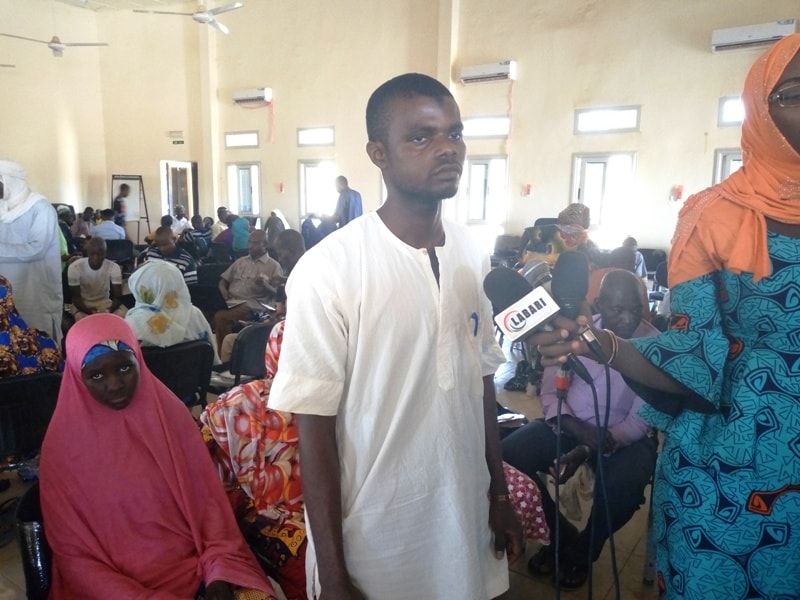
Moussa Illiassou
At the end of their training in Illéla, Zeinabou Mamane, Cheriya Zango's relay, made no secret of her satisfaction. "From now on, my report is sent directly to the Head of the CSI every week instead of every month as in the past. And if I make a mistake, the phone automatically tells me," she says with satisfaction.
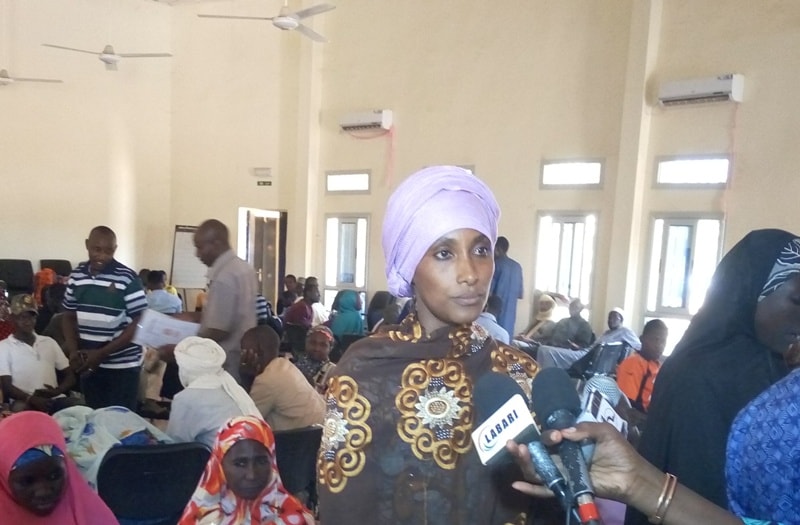
Zeinabou Mamane, relais de Cheriya Zango
Mr Zakari Aboubacar, Head of CSI Dandaji, said: "After receiving training from the trainers, we in turn trained the community relays. We taught them how to fill in information about the relay right up to registration, how to locate themselves, how to manage inputs and how to send the form. I'd like to say a big thank you to the initiators of this project, it's made a huge contribution to our work, and we'd like to see even more if possible.
With the use of mobile phones becoming more and more widespread in Niger, this solution will undoubtedly improve the care of sick children in health centres, and at the same time put technological innovation at the service of the country's socio-economic development through a strong impact in the field of public health.
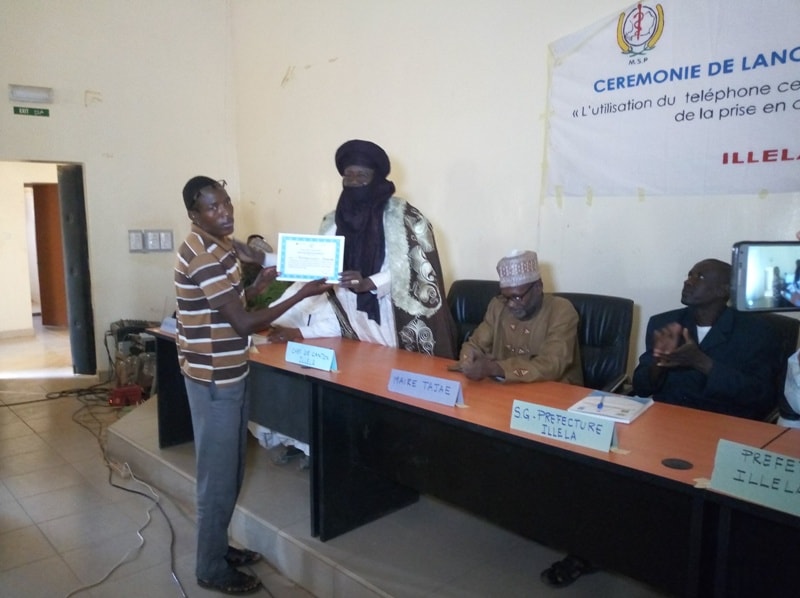
Abdoulkarim Abdou MOUMOUNI (Actuniger.com)
